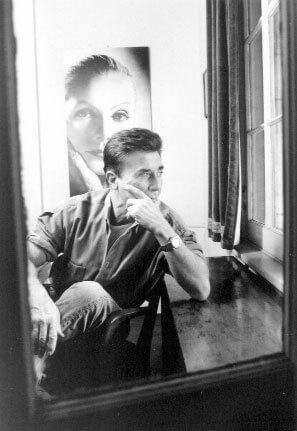John Rechy has a new novel that harkens to bawdy sexual license
John Rechy is the author of many books, most notably, the gay classic “City of Night” (1963). His latest novel, “The Life and Adventures of Lyle Clemens,” has just been published by Grove Press.
Aaron Hamburger:
Your novel can be read as a modern take on the Henry Fielding classic “Tom Jones.” Why do a re-write of “Tom Jones” in 2003?
John Rechy:
It isn’t a rewrite. It’s loosely inspired by “Tom Jones.” Why the picaresque form? Its rambunctious energy allows for twists and turns, impossible coincidences, adventurous exaggerations, broad satire—and our times are ripe for satire. I extended the form, using chapter headings to provide suspense, irony. I melded the humor with strains of sorrow. Instead of the bawdiness of the picaresque novels, I introduced graphic sexuality.
AH: The main character of your book has many zany adventures. Were any of them based on some of your own adventures or people you’ve met?
JR: Lyle doesn’t experience anything I haven’t, in varying degrees. Lyle is quite innocent, and, for some time, I was incredibly naïve, even when I was on Times Square hustling. Once I even accepted a check! I didn’t know penises varied mightily in size until a gentleman solicited me, but wanted to be assured that I didn’t have “one of those tiny ones.” I assumed I didn’t since the transaction was successful.
AH: You poke some harsh jabs at right wing politics and organized religion in the book. What made you take these political stands in your novel?
JR: Picaresque writers used thinly disguised characters to satirize offensive actual people. The take-over of the presidency by right wing Supreme Court judges is appalling. Ridicule is an effective means of protest. That element enhances my narrative.
AH: How has Texas changed from when you grew up there?
JR: After many years of being officially shunned, I was honored this year by my alma mater, the University of Texas at El Paso, with the highest recognition awarded by the College of Liberal Arts. And I was honored by the libraries there. I’ve even been welcomed into the Texas Institute of Arts. All that is major change, especially in Texas, where, even at big universities, faculty members remain closeted. I actually received compliments for my “courage” in introducing my long-time partner as “my beloved partner” during the ceremonies.
AH: You’re well-known as a teacher of writing as well as a writer. Do you mentor any young gay writers?
JR: I don’t consider myself a teacher. I consider myself an experienced, reliable guide into the jungle of publishing. Several well known writers have emerged out of my courses—Kate Braverman, Michael Nava, Michael Cunningham, Sandra Tsing Loh. I do all I can to help good writers, regardless of sexual orientation, gender, or age.
AH: What’s the biggest misconception about you personally? And your work?
JR: That my so-called narcissism makes me callous to others. Nonsense. Good narcissism frees you, by feeling good about yourself, to praise others deservedly, non-competitively. Bad narcissism is self-enclosing…. Misconceptions about my work began with “City of Night”—and continued based on misreading by those overwhelmed by my subjects. Read carefully, my books reveal sensitive and caring protagonists. I’ve played several roles, and my characters often do too.
AH: You say you feel you don’t you get the attention you deserve. Why has that happened?
JR: When I first appeared, the label “gay writer” was not used, but now that labels proliferate I’m viewed insistently as a “gay writer,” and that restricts attention. Too, I refuse to put myself down, pretend humility. The artist is involved in creation, and that’s not humble. The fact that I’m devoted to my appearance, continue to work out, get pleasure from my body disturbs some people and goads them to denigrate my work. My humor about my own extremes is often missed.
AH: How domesticated have you become now that you’re in a relationship?
JR: Domesticated? Never. Yes, my partner and I have recently bought a beautiful house in the Hollywood Hills. But in the plus-20 years we have been together, we have never made restrictive rules, never attempted to own each other. We “choose” to be together. I disdain gay people wanting to marry. That’s heterosexual imitation. What we do need is equal rights. Gay relationships may be superior to heterosexual relationships in that, when we stay with one person, we do so by “choice,” not by law. What could be more faithful than that?
AH: What do you regret most in your life?
JR: That I was never “Mr. America.”
AH: What are you working on next?
JR: For over 20 years I’ve been working on a novel titled “Autobiography: A Novel.” The title describes the work, and my view of autobiography as quintessential fiction. I’m also working on a section of it that I may publish as a short novel.
































